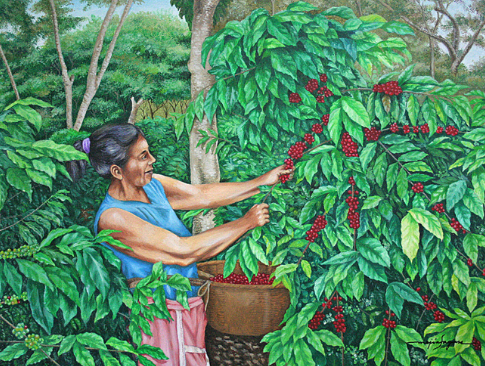
The federal entity framed within the federal territory of Sucre State in Venezuela, is the result of a high syncretism and a dynamic cultural diversity. This piece of land in the east of the country shows us, at present, an interesting and significant musical universe that enriches its collective feeling and its daily dynamics. It is in this socio-historical-cultural evolution where we find the indigenous, European and African musical contributions that have merged to offer us that beautiful musical range that this federal entity called Sucre State possesses.
Despite the strong globalizing process of culture, the devaluation and the loss that is experienced today of some of the musical expressions in Venezuela, in Sucre the musical tradition is maintained, through a process of resistance, because it feeds on the constant inventiveness and the deep popular roots of its cultores.
With this brief introduction, we present today's song known as Yojo. It is a traditional work song - a job linked to coffee harvesting. This Yojo is a compilation made by Petra Edelmira Guzmán. Edelmira is a poet, composer, cultural promoter and social fighter and this manifestation of singing a cappella was received, by oral source, from her mother, who, in turn, received him, in the same way, also from her mother, grandmother of Petra Edelmira
The phonetics of the Yojo is actually a warning broadcast, a shout of greeting and an indication of being ready for communication among the field workers, specifically, in the coffee harvest. It is a human need to be able to communicate to transmit and orally exchange news, local events, illnesses, family situations, gossip and description of the climatic conditions and the work itself.
This collection is part of the Discographic Work entitled Sucre, Music and Tradition (2002), which was conducted under the patronage of Fundapatrimoniosucre, with the support of the National Council of Culture (CONAC) and the Government of Sucre State, all State institutions Venezuelan. The work was musicalized, supervised and produced by this server who writes these lines (Estelio Padilla). All this Musical Production represents an enormous effort on the part of each one of us who are committed to promote and spread our Venezuelan culture. This is how, on this occasion, a part of the collection that brings together the emblematic musical instruments and genres of our tradition is shown, seeking to reaffirm the value of our musical expressions and their popular cultores, thus demonstrating the immense creative potential of the people of the State Sucre.
Estelio Padilla
Title of the Musical Production: Venezuelan traditional music. The legacy of the living Cultural Patrimonies
No. Of Track: 9
Song title: "Yojo" (Coffee songs)
Compilation: Edelmira Guzmán
Musical Genre: Yojo
Performer: Edelmira Guzmán
Production and Musical Supervision: Estelio Padilla
Yojo (Coffee songs)
Let's sing a Yojo
Dear Yojo, little hand Yojo
To cheer up this mountain
Dear Yojo, little hand Yojo
Joan can not sing
Dear Yojo, brunette Yojo
He has been bitten by a yolofa
Dear Yojo, brunette Yojo
For a chew of tobacco
Dear Yojo, little hand Yojo
So that the pain is removed
Dear Yojo, brunette Yojo
Now I know why they are sad
Dear Yojo, little hand Yojo
Juana puts joy
Dear Yojo, little hand Yojo
I already took two almudos
Dear Yojo, brunette Yojo
I already earned four reals
Dear Yojo, brunette Yojo
In my farm they pay less
Dear Yojo, brunette Yojo
It is a real for each almudo
Dear Yojo, brunette Yojo
There is with us
Dear Yojo, brunette Yojo
And you will earn the day well
Dear Yojo, brunette Yojo
He's singing the churura
Dear Yojo, brunette Yojo
It is time to say goodbye
Dear Yojo, brunette Yojo
I'm going to say goodbye to my singing
Morena Yojo, dear Yojo
Because here are my boys
Dear Yojo, brunette Yojo
► Listen on DSound
► Listen from source (IPFS)
Upvoted.
Absolutely loved it. Thank you so much for sharing this, this was great to hear. Thank you so much for providing the dialog behind the song, it gives it so much power and context. Absolutely wonderful piece!
Thank you for the dedication to reading that supports the audio in this post. It is about responding to the context in which the music arises, that makes the sound phenomenon much more valuable and significant, magnifying its heritage value.
Master, this is beautiful. I started to read a bit about el Canto de Trabajo awhile, as this sort of Canto de Pilón. I connect very deeply with this, as if music makes a wider sense than any I may think I could barely own or understand.
I recommend you to convert the tracks to MP3 so they are easier to play.
¡Genial!
So is. The music in this case transcends the musical explanation and is valued, not only for the musical elements that conform, but also for its genesis as an important element of the way of life of the people. In that lies its artistic meaning: remembrance of a historical time that accounts, today, for our life history.
Thank you very much for your comment.